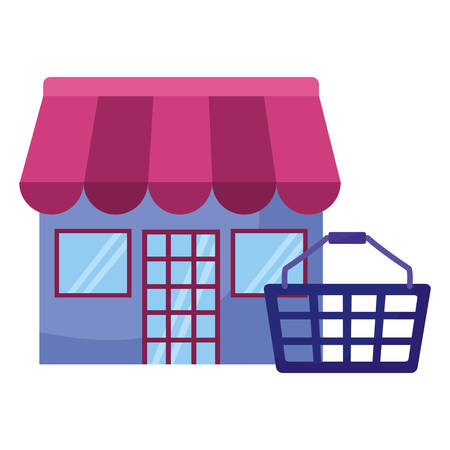Understanding Local SEO in the UK Digital Landscape
For UK e-commerce businesses leveraging Shopify and WooCommerce, local SEO is more than just a buzzword—its a strategic necessity. Unlike global or even general national SEO, local SEO focuses on connecting your online shop with customers in specific UK regions, towns, or cities. This is especially crucial as British consumers increasingly use search engines to discover products and services near them, often including location-based keywords in their queries.
What Sets the UK E-Commerce Environment Apart?
The UK digital marketplace is unique due to its diverse regions, distinctive dialects, and varying consumer expectations across England, Scotland, Wales, and Northern Ireland. Regional search behaviours also play a significant role; for example, shoppers in London may prioritise fast delivery and click-and-collect options, while those in rural areas might be more interested in nationwide shipping availability.
Key Factors Influencing Local Search Behaviour in the UK
| Factor | Description | UK Example |
|---|---|---|
| Location Keywords | Including town/city names and postcodes in searches | “Organic skincare Glasgow”, “Men’s shoes SW1 London” |
| Device Usage | High mobile usage for local product searches | Searching “near me” on mobiles during commutes |
| User Expectations | Desire for accurate business info (opening times, stock levels) | “Is this shop open now?” or “Same-day dispatch Bristol” |
| Local Trust Signals | Looking for reviews from fellow UK shoppers | Trustpilot ratings or Google reviews mentioning local delivery speed |
The Importance of Hyperlocal Optimisation
To succeed in the UK e-commerce space, it’s essential to tailor your local SEO strategies to the nuances of British searchers. This means not only optimising for generic keywords but also incorporating regional slang, postcode references, and British spellings throughout your Shopify or WooCommerce store. By understanding these essentials and adapting to evolving local search trends, you can connect more effectively with customers right where they are—across every corner of the UK.
2. Optimising Google Business Profile for UK Retailers
For e-commerce businesses in the UK operating via Shopify or WooCommerce, an optimised Google Business Profile (GBP) can be a game-changer for local SEO. Properly setting up and maintaining your GBP ensures customers find accurate information and enhances your visibility in local search results. Begin by ensuring your business address follows the standard UK format, which typically includes building number, street name, locality, city, county, and postcode. For example: “14 High Street, Shoreham-by-Sea, West Sussex, BN43 5DA”. Consistency across your website and all directories is essential for NAP (Name, Address, Phone Number) accuracy—a key ranking factor in Google’s local algorithm.
UK Address & Contact Details Formatting
| Field | UK Example | Best Practice |
|---|---|---|
| Address | 14 High Street, Shoreham-by-Sea, BN43 5DA | Include full postcode and locality |
| Phone Number | +44 1273 123456 | Use international code +44 and a space after area code |
| [email protected] | Use .co.uk domain for authenticity |
Setting Opening Hours & Features for UK Audiences
Display opening hours using the 24-hour clock or clearly state ‘am’/‘pm’, as this is common practice in the UK. For example, list hours as “Mon-Fri: 09:00-17:30” or “Saturday: 10am-4pm”. Bank holidays are significant shopping days—ensure you update your GBP with special opening hours for events such as Boxing Day and Easter Monday. Enable relevant features like ‘Click & Collect’ or ‘Curbside Pickup’ if supported by your e-commerce platform, as these are popular fulfilment methods in the UK.
Essential GBP Features for UK Shopify & WooCommerce Stores
- Service Areas: Specify delivery areas if you offer local delivery—list towns or postcodes covered.
- Attributes: Use attributes like “Women-led”, “LGBTQ+ friendly”, or “Wheelchair accessible” where applicable to appeal to diverse UK audiences.
- Photos: Upload high-quality storefront images and product shots relevant to your UK customer base.
- Reviews: Encourage happy customers to leave reviews mentioning specific products or locations to boost local relevance.
Troubleshooting Common Issues
If you operate solely online but serve specific regions, set your service area rather than displaying a physical address. Always use consistent language—refer to ‘postcode’ instead of ‘zip code’, and use British English spelling throughout your profile (e.g., ‘colour’ not ‘color’). By tailoring every aspect of your Google Business Profile to British standards and terminology, you’ll provide a seamless experience for local customers and strengthen your position in the competitive UK e-commerce landscape.

3. Keyword Research and On-Page Optimisation with British English Nuances
When optimising your UK e-commerce store on Shopify or WooCommerce, keyword research must go beyond generic phrases to capture the unique language and behaviour of British shoppers. This means embracing British spelling, colloquialisms, and region-specific terms. Begin by identifying core products or services and use tools like Google Keyword Planner or Ahrefs to find keywords popular among UK audiences. Don’t overlook local slang—‘trainers’ instead of ‘sneakers’, ‘jumpers’ over ‘sweaters’, or ‘biscuit’ rather than ‘cookie’. Such nuances can significantly improve your visibility for local searches.
Tailoring Keywords for UK Audiences
Incorporate British spellings (e.g., ‘colour’ vs. ‘color’, ‘favourite’ vs. ‘favorite’) throughout product titles, descriptions, and metadata. It’s equally crucial to include regional keywords if you’re targeting specific areas—think ‘London florist’, ‘Manchester bike shop’, or even more granular neighbourhood references.
Common US vs UK E-Commerce Keywords
| US English | British English |
|---|---|
| Color | Colour |
| Sneakers | Trainers |
| Pants | Trousers |
| Cookie | Biscuit |
| Vacation | Holiday |
Integrating Keywords into Your Storefront
For both Shopify and WooCommerce, ensure these tailored keywords are present in page titles, meta descriptions, H1s/H2s, image alt text, and product copy. Add location modifiers where relevant (e.g., ‘Bath handmade soaps’) to further enhance local relevance. By blending keyword strategies with authentic British expressions and spelling, your site will resonate more with UK customers and outperform competitors relying on generic SEO approaches.
Building Local Citations and Backlinks from Trusted UK Sources
To strengthen your local SEO presence, UK e-commerce businesses using Shopify and WooCommerce should focus on acquiring citations and backlinks from authoritative, locally relevant sources. Not only do these links help boost your search visibility within the UK, but they also reinforce your business’s credibility in the eyes of both customers and search engines.
Identifying Key UK Citation and Backlink Opportunities
Start by targeting platforms that are widely recognised across the UK. This includes reputable business directories, regional listing sites, and industry-specific portals that cater to British audiences. Consistency is key—ensure your NAP (Name, Address, Phone number) details match exactly across every platform you use.
Prominent UK Business Directories
| Directory Name | URL | Key Features |
|---|---|---|
| Yell.com | yell.com | UK’s leading business directory with strong local authority |
| Scoot | scoot.co.uk | Covers a wide range of UK businesses; integrates with other platforms like TouchLocal |
| Thomson Local | thomsonlocal.com | Popular for local searches and print directory heritage |
| Bing Places for Business UK | bingplaces.com | Free local business listing on Bing’s search engine for UK users |
| 192.com | 192.com/business/ | Comprehensive people and business search for the UK market |
| The Independent Directory | directory.independent.co.uk | Backed by The Independent newspaper; credible and well-recognised platform |
Industry-Relevant Local Websites & Platforms
If you’re operating in a specific sector (e.g., fashion, electronics, food & drink), look for UK-based industry associations, trade groups, or local chambers of commerce that offer member listings or partnership opportunities. For example, the British Retail Consortium (BRC), UK Fashion & Textile Association (UKFT), or local BID (Business Improvement District) websites often provide valuable backlink opportunities.
Best Practices for Securing Local Links and Listings
- Submit accurate details: Triple-check your business information before submitting to avoid inconsistencies that can harm rankings.
- Add rich content: Where possible, include photos, descriptions, opening hours, and links to your Shopify or WooCommerce shopfront.
- Pursue local press coverage: Reach out to regional news outlets or blogs for features on your e-commerce story—these can provide high-quality backlinks with strong local relevance.
- Engage in community sponsorships: Supporting local events or charities often results in a mention and link from their website.
- Encourage satisfied customers to leave reviews: Many directories display user-generated ratings that improve your trust signals in local searches.
The Impact on Shopify and WooCommerce Stores in the UK Market
By systematically building citations and acquiring backlinks from established UK sources, you’ll not only enhance your domain authority but also improve your visibility in Google’s “local pack” results. This positions your Shopify or WooCommerce store as a trusted choice among British shoppers looking for reliable online retailers close to home.
5. Enhancing Location Pages for Multiple UK Regions
Creating effective, locally-optimised landing pages is vital for UK e-commerce businesses looking to dominate local search results across England, Scotland, Wales, and Northern Ireland. Both Shopify and WooCommerce offer flexible options for building unique location pages, but success hinges on following best practices tailored to the nuances of each region.
Best Practices for Regional Landing Pages
- Unique Content: Avoid generic copy-and-paste content. Each regional page should showcase specific information relevant to the locality—such as shipping options, local offers, events, or customer testimonials from that area.
- Geo-Specific Keywords: Incorporate keywords with city or county names (e.g., “Manchester organic coffee delivery” or “Aberdeen children’s clothing shop”) naturally within headings and body text.
- Local Contact Details: Display address, phone numbers with appropriate area codes, and Google Maps embeds for physical shops or service areas to boost trust and visibility in local searches.
- Schema Markup: Use LocalBusiness schema with accurate business details and location-specific information to help search engines understand your regional presence.
- User-Generated Content: Feature reviews or photos from customers in different regions to enhance authenticity and encourage local engagement.
Structuring Your Location Pages
Region |
Recommended Page Elements |
Local SEO Focus |
|---|---|---|
| England (e.g., London, Birmingham) |
|
|
| Scotland (e.g., Glasgow, Edinburgh) |
|
|
| Wales (e.g., Cardiff, Swansea) |
|
|
| Northern Ireland (e.g., Belfast, Derry) |
|
|
Optimising for Mobile and Voice Search
Many UK consumers use mobile devices or voice assistants to search locally (“Where can I buy trainers in Leeds?”). Make sure your location pages are responsive and include FAQs tailored to regional queries to capture this traffic.
Summary Checklist for Local Landing Pages:
- Create a dedicated page for each major town or region served.
- Add unique written content with a local angle—avoid duplication across pages.
- Add structured data (schema) and consistent NAP (Name, Address, Phone) details.
- Encourage reviews from customers in each region and display them on relevant pages.
- Monitor local rankings and update content regularly based on new trends or feedback from each area.
6. Gathering and Showcasing Reviews Relevant to UK Shoppers
Reviews are a cornerstone of trust for UK e-commerce businesses, and both Shopify and WooCommerce offer flexible ways to collect and display customer feedback. To truly optimise your local SEO, it’s vital to encourage genuine reviews from local shoppers on platforms that UK consumers know and trust, such as Google, Trustpilot, and Feefo. Here’s how you can effectively gather these reviews and make them work for your brand:
Tactics to Encourage Genuine Local Reviews
- Request Feedback Post-Purchase: Send follow-up emails or SMS messages shortly after delivery, politely requesting a review. Use local language nuances – “We’d love your honest thoughts!” resonates more than generic requests.
- Incentivise Responsibly: Offer small incentives (like discounts on future orders) for leaving reviews, ensuring you comply with the UK Competition and Markets Authority (CMA) guidelines.
- Integrate Review Widgets: Add review forms directly onto your website using Shopify or WooCommerce plugins so customers can leave feedback without friction.
- Target Local Platforms: Encourage reviews on platforms UK shoppers trust most—Google My Business is essential for local discovery, while Trustpilot is widely recognised in the UK market.
Displaying Reviews Effectively for Trust-Building
Once you’ve gathered authentic local reviews, showcasing them in a way that builds credibility is key. Consider the following strategies:
- Feature Location-Specific Testimonials: Display reviews from local customers prominently on product pages and landing pages. Highlight the reviewer’s city or region to enhance local relevance.
- Utilise Rich Snippets: Implement schema markup so star ratings appear in search results, increasing click-through rates from UK-based searches.
- Create a Dedicated Reviews Page: Build a page specifically for customer feedback, sorted by location or product category. This signals transparency and fosters trust among new shoppers.
Preferred Review Platforms Among UK Consumers
| Platform | Strengths | Best Use Case |
|---|---|---|
| Google My Business | Boosts local search visibility; integrates with Maps | Local store & service reviews |
| Trustpilot | Highly trusted by UK consumers; detailed feedback options | E-commerce product/service validation |
| Feefo | Verified buyers only; strong in retail sectors | Building trust in niche markets |
| Facebook Recommendations | Taps into social proof; easy sharing | Younger demographics, social commerce |
Tip: Responding to Reviews Matters!
Acknowledge all feedback—positive or negative—with polite, personalised responses using British English spelling and tone. This not only improves consumer trust but also signals engagement to search engines, reinforcing your local presence within the UK market.
7. Tracking Results and Adapting to UK Market Trends
Effective local SEO for UK e-commerce businesses on Shopify and WooCommerce doesnt stop at implementation; continuous tracking and agile adaptation are essential for sustained success. Monitoring your performance with the right tools enables you to respond to shifts in search behaviour, competitor tactics, and evolving preferences of UK consumers.
Essential Monitoring Tools for Local SEO
| Tool | Purpose | UK-Specific Features |
|---|---|---|
| Google Analytics | Track site traffic, user behaviour, conversion rates by region | Location-based segmentation, goal tracking for UK cities or regions |
| Google Search Console | Monitor search visibility, keyword performance, technical issues | Filter by UK-specific queries and impressions |
| Bing Webmaster Tools | Analyse performance on Bing (popular among certain UK audiences) | Insights into local Bing searches and device trends |
| BrightLocal / Whitespark | Track local rankings, citation consistency, and reviews | Reports focused on UK postcode areas and directories |
| SEMrush / Ahrefs | Competitor analysis, backlink monitoring, keyword research | Localised SERP tracking for UK markets and competitors |
Adapting Your Local SEO Strategy in the UK Context
- Analyse Analytics Data: Regularly review which locations drive the most valuable traffic and conversions. Adjust content and offers to target high-performing areas or address underperforming regions.
- Monitor Competitor Activity: Keep an eye on how other UK e-commerce brands adjust their local SEO—such as new landing pages, updated Google Business Profiles, or changes in local backlink strategies—and benchmark your efforts accordingly.
- Stay Current with UK Consumer Trends: Use analytics to detect seasonal spikes (e.g., Black Friday, Boxing Day), shifting product interests, or growing demand in certain cities. Update landing pages, schema markup, and ad copy to reflect these trends.
- A/B Testing: Test localised meta titles, store descriptions, or call-to-action buttons using tools like Google Optimize to see what resonates best with your British audience.
- Review & Reputation Management: Monitor reviews across Google and prominent UK platforms (Trustpilot, Yell.com). Respond promptly and use feedback to refine service delivery and messaging.
The Importance of Continuous Improvement
The digital landscape across the UK evolves rapidly. By leveraging robust analytics tools and staying attuned to changing consumer behaviours—from growing mobile searches in Manchester to eco-conscious shopping in Bristol—you can keep your Shopify or WooCommerce store ahead of the curve. Remember: ongoing optimisation based on data-driven insights is key to maintaining strong local visibility and outpacing the competition in every corner of the UK market.


